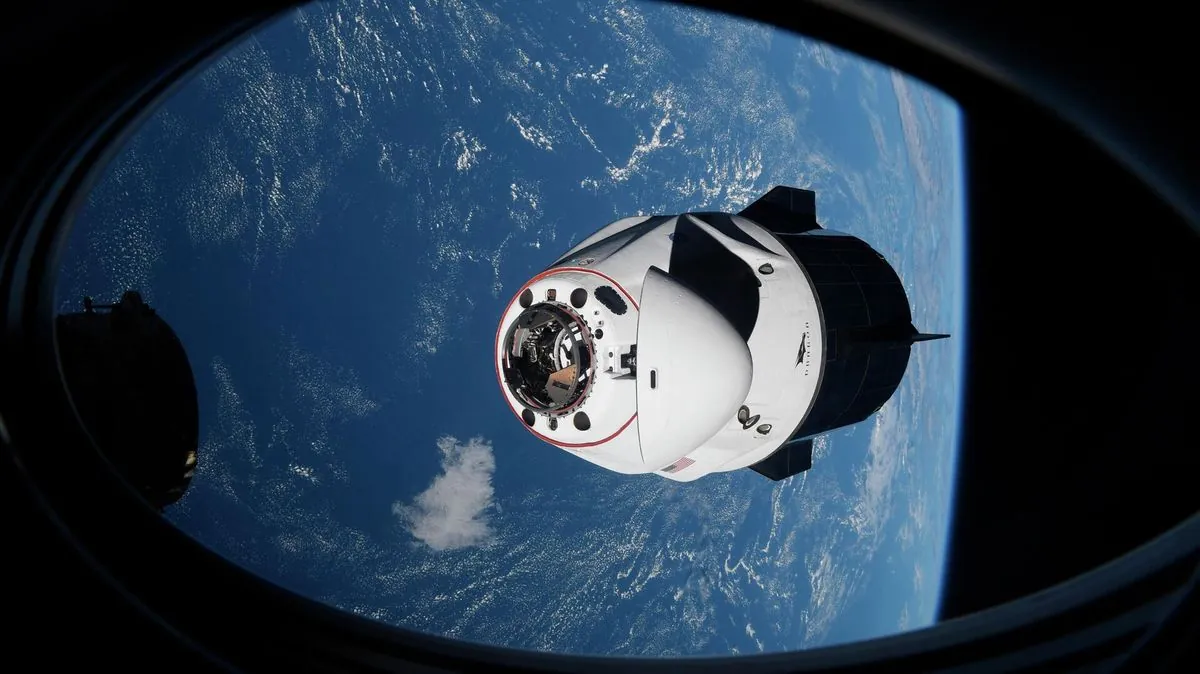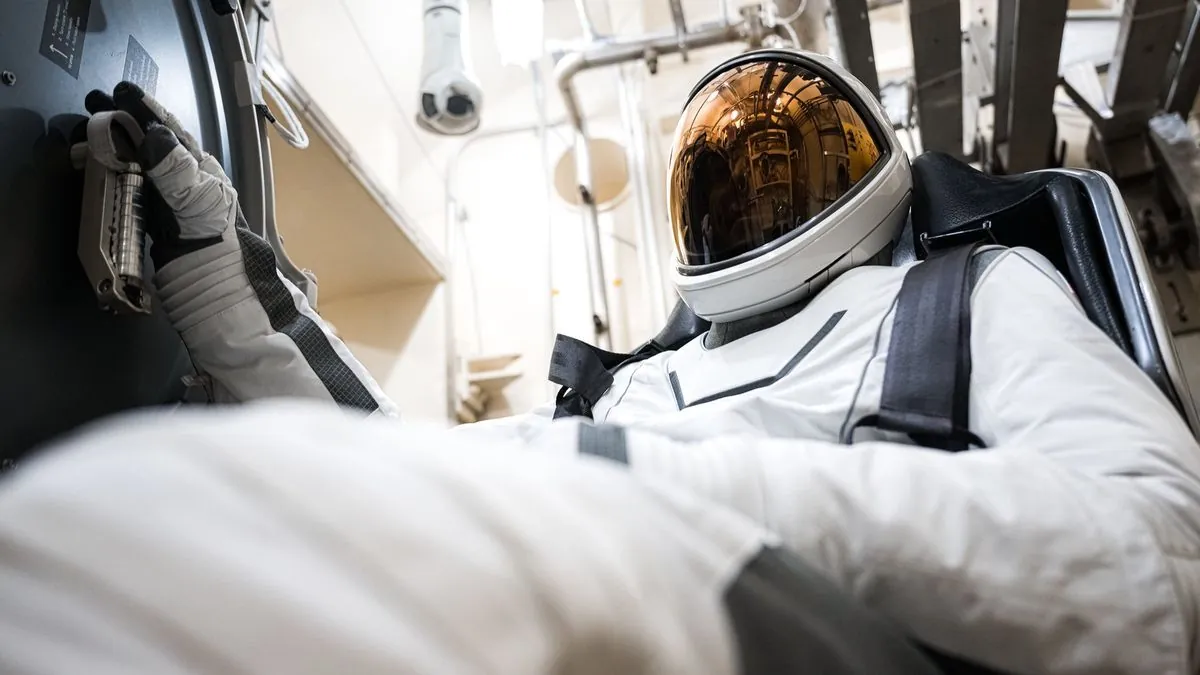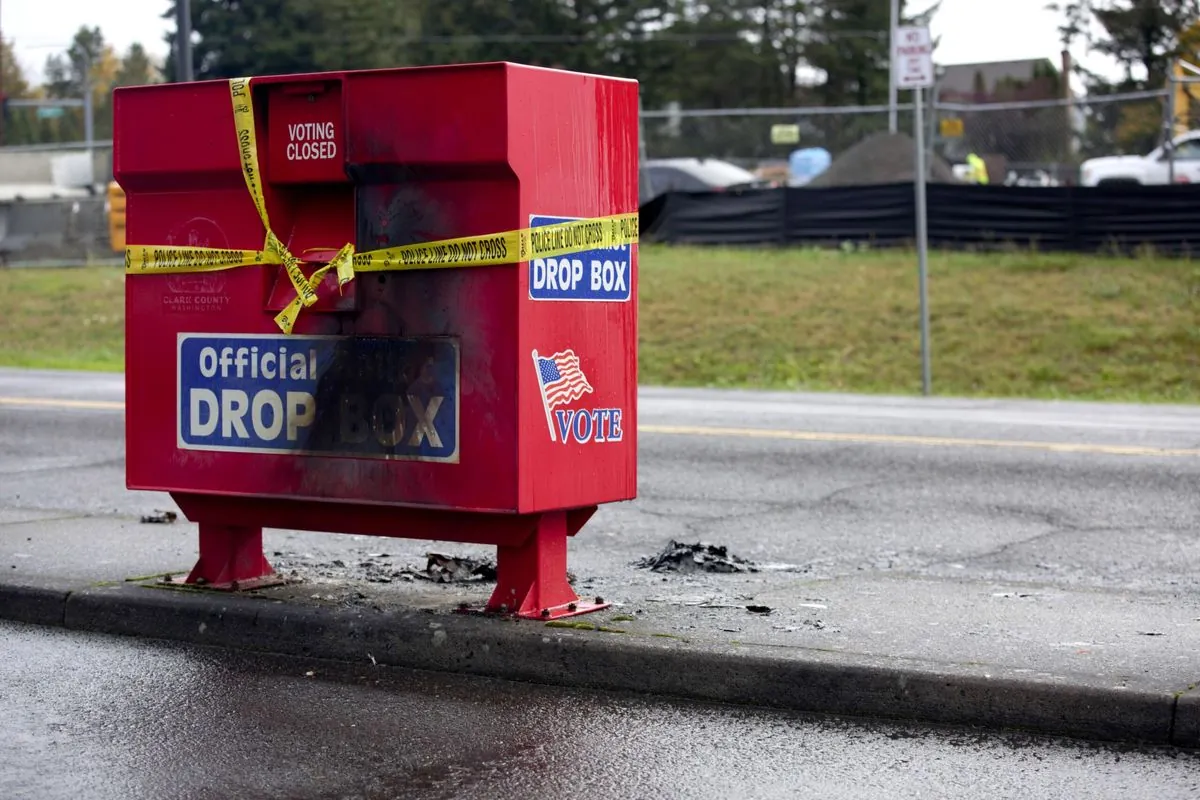Private Spacewalk Mission Aims to Break Altitude Records
A SpaceX mission led by billionaire Jared Isaacman launches, targeting the first private spacewalk and record-breaking altitudes. The crew will test new spacesuits and push the boundaries of commercial space exploration.

On September 10, 2024, a groundbreaking private space mission launched from Cape Canaveral, Florida, marking a significant milestone in commercial space exploration. Led by Jared Isaacman, a tech entrepreneur and billionaire, the mission aims to conduct the first-ever private spacewalk and reach unprecedented altitudes for a crewed spacecraft since the Apollo era.
The mission, utilizing SpaceX's Falcon 9 rocket and Dragon capsule, carries a crew of four: Isaacman, along with SpaceX engineers Sarah Gillis and Anna Menon, and former Air Force Thunderbirds pilot Scott "Kidd" Poteet. This diverse team represents a blend of private sector initiative and aerospace expertise.
One of the primary objectives of this mission is to test newly developed spacesuits by SpaceX. These suits are designed to withstand the harsh conditions of space, including extreme radiation and the vacuum environment. The crew will conduct a two-hour spacewalk on September 12, 2024, during which Isaacman and Gillis will evaluate the suits' performance.

The mission's ambitious goals include reaching an altitude of 1,400 kilometers (870 miles), far surpassing the orbits of both the International Space Station and the Hubble Space Telescope. This would mark the highest altitude reached by humans since the Apollo missions, which ventured to the Moon over five decades ago.
"We're sending you hugs from the ground. May you make history and come home safely."
This flight is part of a series of three missions that Isaacman purchased from SpaceX in early 2022. The collaboration between Isaacman and SpaceX has led to significant advancements in spacesuit technology and private space exploration capabilities.
The mission faced a two-week delay due to unfavorable weather conditions, highlighting the challenges of coordinating both launch and splashdown windows for private space missions. Unlike missions to the International Space Station, this flight has limited supplies and no ability to dock with other spacecraft, emphasizing the importance of careful planning and execution.
As the space industry continues to evolve, this mission represents a significant step towards expanding human presence in space beyond government-led initiatives. It demonstrates the growing capabilities of private companies in developing crucial space technologies and conducting complex operations in Earth orbit.
The success of this mission could pave the way for more ambitious private space endeavors in the future, potentially including lunar missions and beyond. As Isaacman stated before the launch, "I wasn't alive when humans walked on the moon. I'd certainly like my kids to see humans walking on the moon and Mars, and venturing out and exploring our solar system."


































